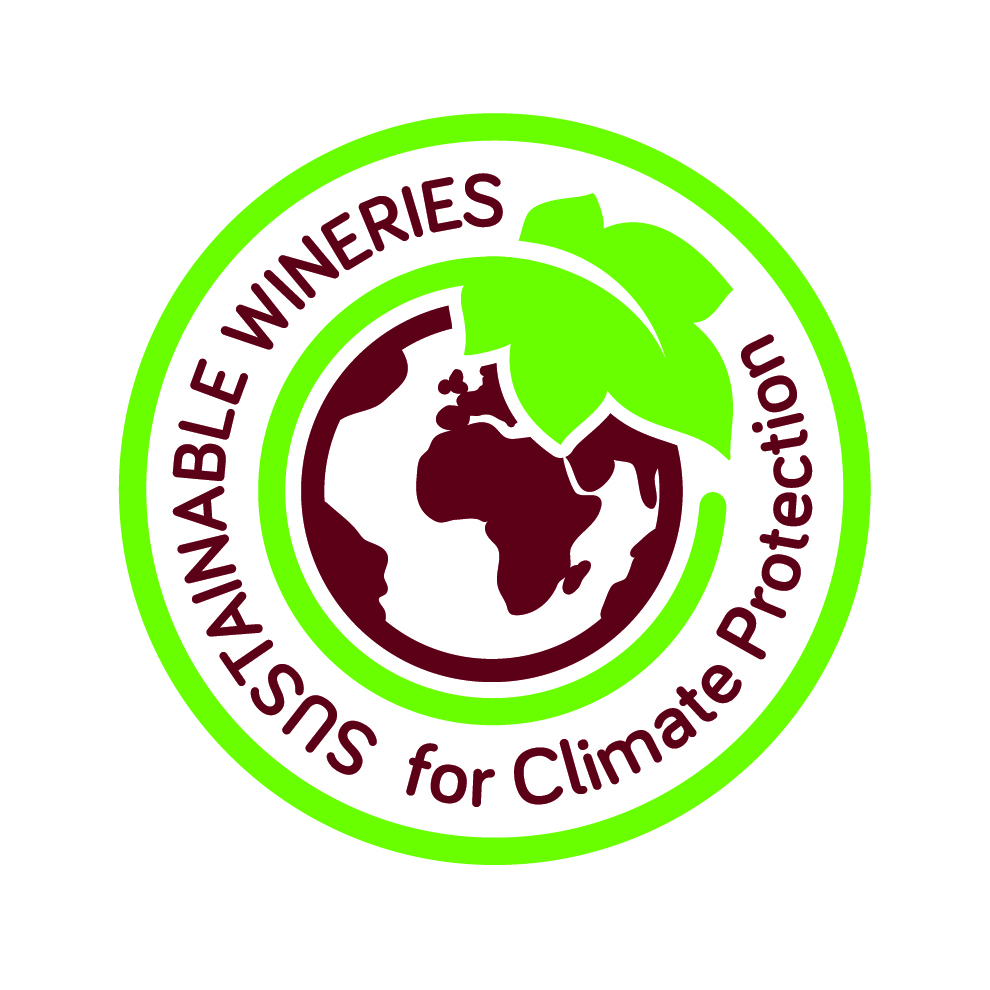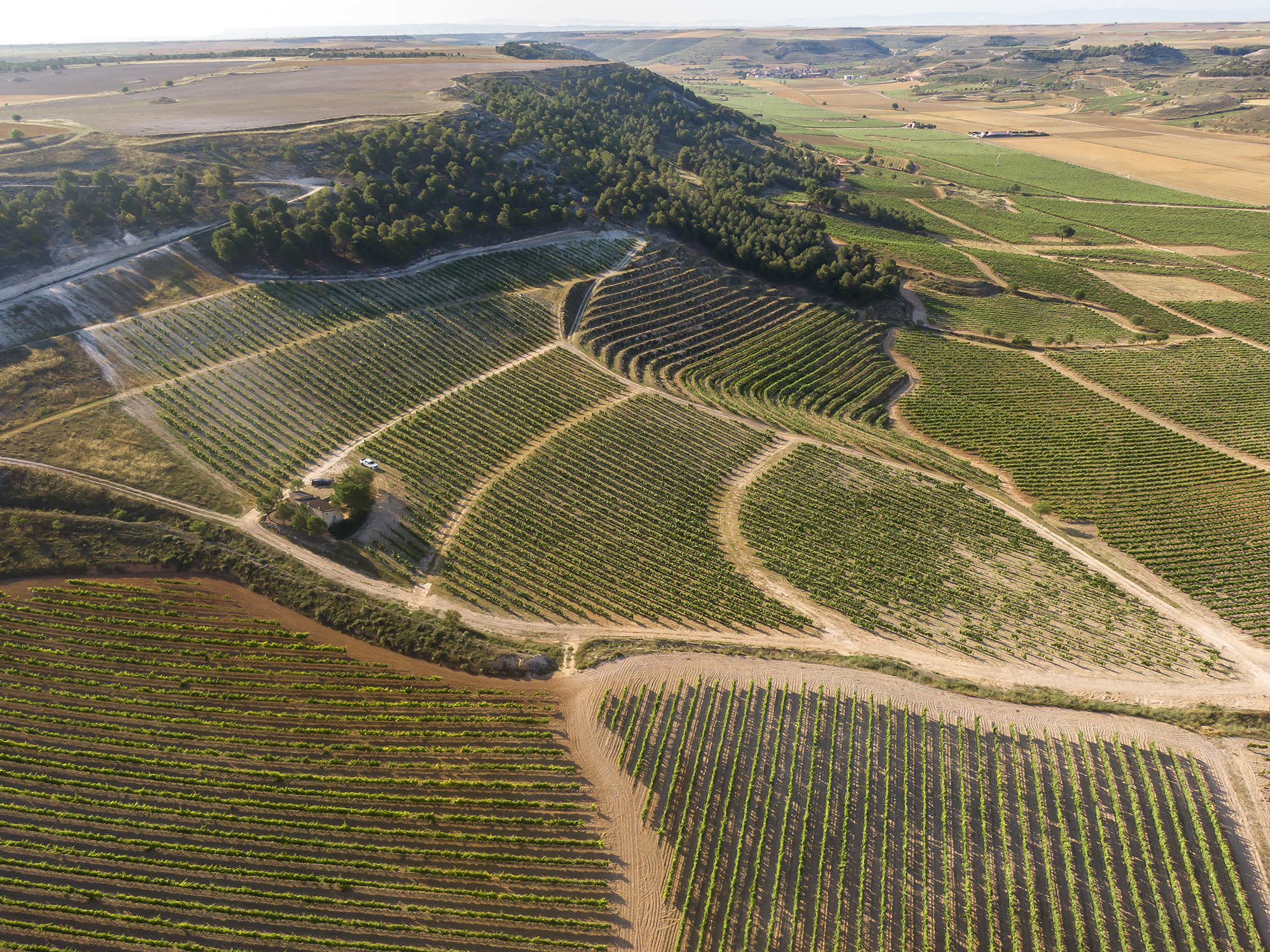Sustainability at Alma is a work culture, a value that permeates all decisions and processes, and is part of the company’s strategy. We have made a commitment: to protect and safeguard our wine-growing heritage, to strengthen the organisation’s own culture and to become an inspiration, making a decisive contribution to society through our commitment to the environment and to people.
An achievement that endorses this commitment to caring for the environment is the certification awarded by the Spanish Wine Federation (FEV) to wineries committed to sustainable development. The Sustainable Wineries for Climate Protection (SWfCP) seal is the evolution of the Wineries for Climate Protection programme, launched in 2015 as the first specific certification for wineries focused on environmental sustainability. This pioneering initiative, which initially focused mainly on environmental aspects, has been growing and adapting to include broader and more rigorous criteria in line with the Sustainable Development Goals (SDGs) and also encompassing values aligned with Alma’s five-fold bottom line: social, economic and governance aspects.
 Pago de Carraovejas is the first Alma project to be certified in SWfCP. It did so for the first time in 2019 and was one of the forerunner wineries in Spain in obtaining the Plus category of this certificate (Spanish Wineries for Emission Reduction), which has just recently been renewed and which implies a greater requirement in the reduction of greenhouse gas emissions and additional conditions in terms of energy and carbon footprint reduction. Specifically, this year we have achieved that 31% of renewable energy comes from photovoltaic solar panels and biomass boilers; a reduction of the carbon footprint of 15.1% and we have, among other practices, a decarbonisation plan whose objective is to reduce our CO2 emissions by 35% before 2030 with actions such as avoiding the burning of vine shoots from vine pruning.
Pago de Carraovejas is the first Alma project to be certified in SWfCP. It did so for the first time in 2019 and was one of the forerunner wineries in Spain in obtaining the Plus category of this certificate (Spanish Wineries for Emission Reduction), which has just recently been renewed and which implies a greater requirement in the reduction of greenhouse gas emissions and additional conditions in terms of energy and carbon footprint reduction. Specifically, this year we have achieved that 31% of renewable energy comes from photovoltaic solar panels and biomass boilers; a reduction of the carbon footprint of 15.1% and we have, among other practices, a decarbonisation plan whose objective is to reduce our CO2 emissions by 35% before 2030 with actions such as avoiding the burning of vine shoots from vine pruning.
In the same year, 2019, Ossian Vides y Vinos also endorsed its sustainable practices with this seal, demonstrating the responsibility acquired in a rigorous and quantifiable way. In 2023, it has achieved it again with a plan of good practices in an environment with pre-phylloxera vines over 200 years old and working organically.
Recently, at the end of 2023, Alma’s winegrowing projects in Fuentenebro and Leiro have obtained for the first time this seal, which represents a firm commitment to preserve the environment and contribute to the fight against climate change. Some of the aspects that endorse this seal are the organic certification of Milsetentayseis wines and the installation of geothermal energy in Viña Meín – Emilio Rojo.
Commitment to sustainable development
“At Alma we hope that our commitment in the present will guarantee a better future for future generations. We understand constant improvement from a continuous evolution, always from the respect and authenticity of an ecosystem that we build together. We are committed to strengthening the organisation’s own culture and to becoming an inspiration, taking care of our relationship with each stakeholder through honesty, coherence and integrity”.
In order to achieve this commitment to sustainable development, our priority is to respect the environment as much as possible by working on organic viticulture and measuring the impact we can have on the environment.
We have an action plan for decarbonisation with short and medium term objectives, reduction of greenhouse gas emissions, improvement of discharges, water management, energy efficiency and waste reduction. We have also drawn up a roadmap for soil conservation and the promotion of biodiversity in the areas where the different wine-growing projects are located.
These sustainable development practices are applied throughout the value chain of our products, from the birth of the raw material until it reaches the hands of the consumer, involving suppliers so that all parts of the process comply with the highest sustainability parameters. In addition, we work to achieve the minimum impact on the arrival of the product to our distribution channels. To achieve this, it is important to have customers who share Alma’s values and philosophy.




